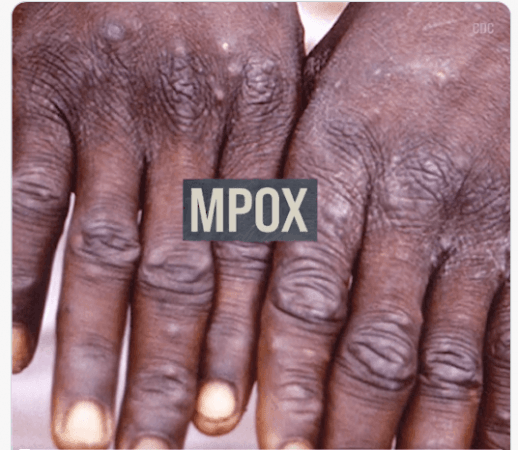
In the midst of a global outbreak of mpox, a report from the US Centers for Disease Control and Prevention (CDC) has provided some reassurance. The report, part of the CDC's 'Morbidity and Mortality' weekly series, indicates that unlike Covid-19, the monkeypox virus (MPXV) does not easily spread through the air. This conclusion is based on a study involving 113 individuals with mpox who travelled on 221 flights during 2021-22. Despite the potential exposure, none of the 1,046 passenger contacts became infected. The CDC's findings suggest that travelling on a flight with a person with mpox does not appear to constitute an exposure risk or warrant routine contact tracing activities. However, the CDC still recommends that people with mpox infections must isolate and delay travel until they are no longer infectious.
The CDC also pointed out that irrespective of variants, the findings apply to MPXV and both clade I and clade II mpox spread in the same ways. Primarily, it spreads via close physical or intimate contact with people infected with mpox lesions and less often via infectious respiratory secretions and fomites. The current outbreak is majorly driven by the clade 1b, which has historically been associated with increased transmissibility. Mpox, currently spreading rapidly in Africa, infecting both adults and children, has been declared a global health emergency by the World Health Organization (WHO). It is also surging deaths, especially among children, raising concerns of being airborne.

Dr. Rajeev Jayadevan, co-chairman of the Indian Medical Association's National Covid-19 Task Force, noted that the situation is different during close contact, where respiratory droplets could still play a role. This suggests that while mpox is not easily spread through the air in general, closer proximity and direct contact increase the risk of transmission, potentially including via respiratory secretions. Outside of Africa, mpox's clade 1b has spread to Sweden and Thailand with one case each being reported so far. This global spread of mpox, particularly the clade 1b variant, is reminiscent of the early days of the Covid-19 pandemic, when the virus began to appear in countries outside of its initial outbreak location.
The global health community is responding to the mpox outbreak with urgency. The Democratic Republic of Congo (DRC), one of the most heavily affected countries, has received its first shipment of mpox vaccines. The vaccines, donated by the European Union, are from the Danish pharmaceutical laboratory Bavarian Nordic. It is the only vaccine approved in Europe and the United States and is only intended for adults. Trials are currently being conducted for potential use on children over the age of 12. The World Health Organization declared an international emergency on August 14, concerned by the surge in cases of the new Clade 1b strain in the DRC that spread to nearby countries. However, the DRC will face a major logistical challenge in a territory four times the size of France with poor roads, shambolic infrastructure and erratic power supplies. The Danish vaccine must also be stored in special conditions, at minus 20°C, the temperature of a freezer, Muschel said.
The situation is further complicated by the fact that the majority of mpox cases are never actually tested. Ninety per cent of cases are never actually tested, so we are actually only diagnostically confirming about 10 percent, said Dr. Maria Van Kerkhove, who leads the WHO's department of epidemic and pandemic preparedness and prevention. The global response to the mpox outbreak is a stark reminder of the importance of international cooperation in the face of health emergencies. As the world continues to grapple with the ongoing Covid-19 pandemic, the mpox outbreak serves as a sobering reminder of the need for vigilance, preparedness, and swift action in the face of emerging infectious diseases.

















